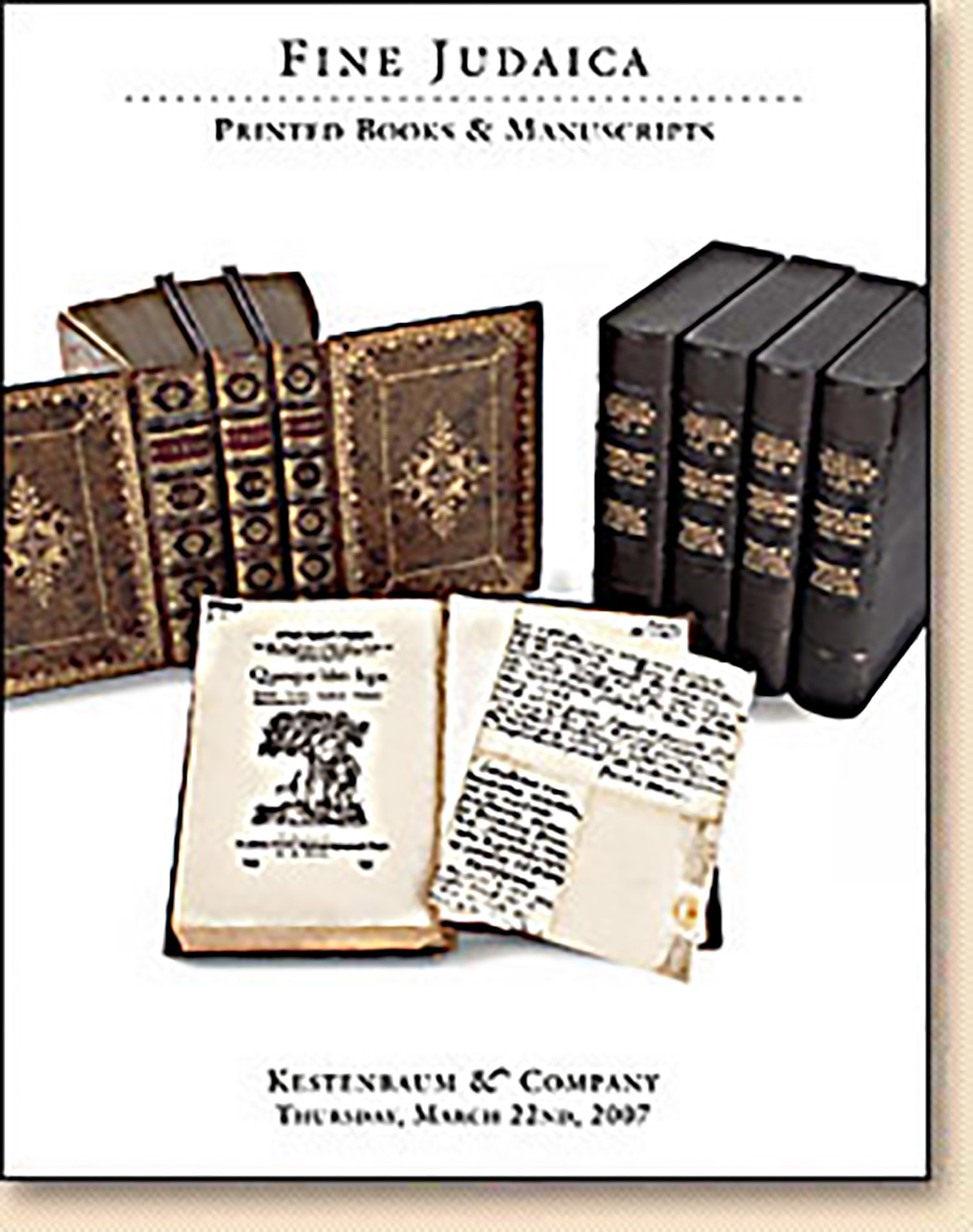(Attributed to). Ma’arecheth ha-Elo-huth [Kabbalah]. With commentary by Judah Chayat and anonymous commentary

AUCTION 36 |
Thursday, March 22nd,
2007 at 1:00
Fine Judaica: Printed Books & Manuscripts
Lot 164
PERETZ BEN ISAAC HAKOHEN.
(Attributed to). Ma’arecheth ha-Elo-huth [Kabbalah]. With commentary by Judah Chayat and anonymous commentary
Ferrara: Abraham ibn Usque 1558
Est: $3,000 - $5,000
One of the most significant works on the Kabbalah due to its systematic treatment of all relevant themes in earlier literature. Its contribution to speculative mystic theory in pre-Zoharite Kabbalistic literature is the increased symbolism of the Sephiroth. The author quotes a multitude of names by which each Sephirah is known, each signifying a differing function. He also develops the “Adam Kadmon” theory, whereby the likeness of the order of the Divine Powers of the Sephiroth to the human body is explored.
In the same year of 1558, two editions of Ma’arecheth ha-Elo-huth appeared, one in Mantua (see next Lot), the other in Ferrara. In the present Ferrara edition, the anonymous commentary is designated simply “Peirush,” whereas in the Mantua edition it bears the initials Pa”Z, for “Peirush Zulath” (“Another Commentary”). According to Scholem, the Ferrara version of the commentary has several important passages lacking in the Mantua edition. G. Scholem, Studies in Kabbalah I (Tel Aviv, 1998), p. 176
The ascription to “R. Peretz the Tosaphist” has long been discredited. For contemporary scholarly opinion, see “On the Problem of Sepher Ma’arecheth he-Elo-huth and Its Commentaries” in: Gershom Scholem, Studies in Kabbalah I, pp. 171-188. Recently, Prof. Ephraim Gottlieb identified the author of the anonymous commentary “Paz” as R. Reuben Sarfati. See S. Heller-Wilensky and M. Idel eds., Mechkarim be-Haguth Yehudith (Jerusalem, 1989), pp. 357-369
